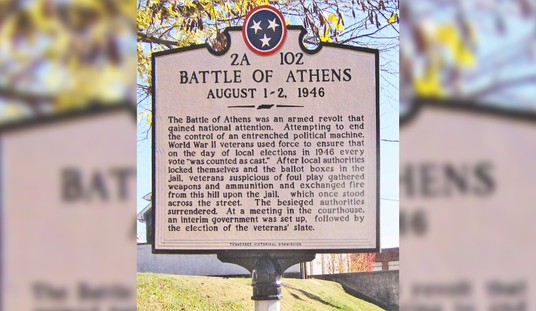Last week I wrote a fun little piece on the latest in youthful virtue signaling: “Sober curious.” If you missed it, young persons have elevated the decision over whether to have a drink to a lifestyle choice involving support groups and (of course) friendly media coverage.
Naturally, their defenders showed up in the comments. One accused me of dropping a “pile of sneering hatred” that was “dripping with professed virtue.” Another asked, “Is this idiot writer seriously making fun of people for choosing sobriety?”
ASIDE: That second commenter also accused me of being a Budweiser drinker. That hurt.
Well, no. They aren’t choosing sobriety, as my article and the related NPR report both made plain. They are choosing, on occasion, not to drink, and treating it as some great moral accomplishment.
It isn’t.
But let me tell you what is a great accomplishment: Being a recovering alcoholic.
Years ago I had a dear friend with a serious alcohol and drug problem. We’ll call her “C.” We were a tightknit group of friends, and C kept her problem hidden from us as best she could. Still, we worried, even though we were all fairly blasé 20-somethings.
When C sought treatment the first time and entered a rehab program, we really hoped it would stick. It didn’t. One very troubled year later, she emerged from a second round of rehab, and she’s been clean and sober ever since. By my math, C is going on 25 years of sobriety.
How difficult is that? Maybe this True Story™ will make it plain.
Not long after C was in recovery, we’d gotten the gang together for dinner and a night at a local comedy club. Dinner involved a drink or two for all the drinkers, and soft drinks for C. We ran a bit late, but we didn’t want to miss the opening act. So we settled the bill and left our unfinished beers and cocktails on the table as we hurried out.
As she told me the next day, C was somewhere between miffed and mystified at what had happened. “You didn’t have to leave half-finished drinks on the table to protect me,” she said, or words to that effect. She said she wondered if maybe we were showing off. I told her we hadn’t done anything like that — we were going to be late for the show, and so we’d left our cocktails. “What’s that like,” she asked, “being able to start a drink and not have to finish it?”
I had no idea what to say. Putting down a drink isn’t like anything… it’s just putting something down. It’s like not cleaning your plate because you’re full, I guess.
So I asked C, “What’s it like not being able to drink, because you can’t stop?”
“It’s hard,” she said. “Every day it’s hard.” It was hard when she was still drinking, and it was harder still after she’d gone into recovery. It was hard in the morning, hard at night, and hard in between. It was hard every time she saw someone with a drink in their hand, and who could finish it or not.
Now imagine every single day is hard like that. Without relief. For a quarter of a century. That’s why alcoholics have support groups. It’s why they have sponsors. It’s why they take it one day at a time.
Alcoholism is a lifelong disease, and the only treatment is to show the moral strength, each and every day — sometimes moment to moment — not to succumb to it. Or as one of my Facebook friends indelicately (but correctly) put it: “As someone struggling through recovery, I would like to cordially welcome non-addicts playing at sobriety to go f*** themselves with a rusty poleaxe.”
Indeed.
There’s no such thing as “sober curious,” just like there isn’t any such thing as being a little bit alcoholic. Those who have this horrible disease deserve all the help they can get to enter recovery and stick with a program. Pretentious twits who drink when they want, but think that going out on occasion and not drinking somehow earns them the same respect my friend C deserves…
…well, I didn’t give those kids half the sneering condescension they were asking for.










